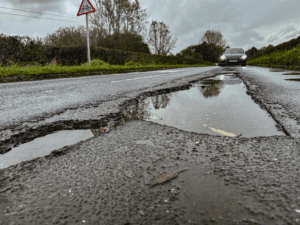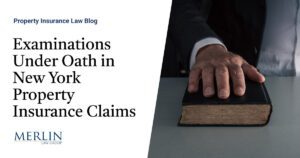The tax truth about side-hustles

Are you side-hustling in 2024? The term has boomed during this cost-of-living crisis, with many of us seeking to earn extra cash to boost our incomes. From selling second-hand items on eBay, sharing handmade goods on Etsy or renting out a room on Airbnb, there’s all sorts of ways to do it. Vinted and Depop are two names you may also have seen; popular platforms where users can buy and sell clothing. Thousands have been selling on these sites: in 2023, 44% people said they had a side-hustle, with Gen Z being the most active in this realm. A huge 76% of 11–26-year-olds are side-hustling!
But now, news has broken about HMRC paying closer attention to sites like Etsy, Vinted and eBay. What does this all mean about what tax you have to pay? Let’s cut through the noise and find out!
What’s happening with HMRC and ‘side-hustle’ sites?
The latest announcement is that if you make money via sites such as:
Vinted
eBay
Etsy
Depop
Airbnb
Uber
Deliveroo
Or similar, then these firms will start passing on information about you to HM Revenue and Customs (HMRC). Starting from Monday 1st January 2024, ‘digital platforms’ now have to collect extra information about sellers, including how many sales you’ve made and how much income you’ve generated. Then, these platforms will have to start automatically sharing this information with HMRC by 31st January 2025.
How is this different to before, you ask? Well, previously HMRC was able to access sellers’ information from UK-based online platforms, as and when required. So, it’s not an entirely new concept to know that HMRC is keeping tabs on your side-hustle. The difference is the automatic data sharing process, which also covers overseas platforms.
Why is HMRC starting automatic data sharing?
The new system comes after the UK signed up to rules by the Organisation for Economic Cooperation and Development, which aim to tackle tax evasion on a global scale. Some have questioned the fairness of this new system, pointing out the major tax evasion scandals of behemoths like Starbucks and Amazon. How does making a few extra pennies on Vinted compare?
It’s important to note that this isn’t a new tax. The rules around who pays tax on earnings made from digital platforms hasn’t changed. If you didn’t owe any tax on earnings from these sites before, and you continue to use them in the same way, then you won’t need to start paying tax on them now.
What the changes mean is that HMRC has more visibility on your income from these sites than before. So, now is probably a good time to check if you owe any tax, or whether you may do in the future. Additionally, the new system means that HMRC can share the data collected with tax authorities in other countries signed up to the new rules and vice versa. It’s not fully clear which countries are signed on, though it’s expected to be most EU member states.
What do I need to do?
If the total amount you earn via a platform in a tax year is £1,000 or less – you probably don’t need to tell HMRC or pay any extra tax. And that’s the same as before. These earnings are usually covered by the ‘trading allowance’, which means you can earn up to £1,000 tax-free without having to report the income to HMRC or pay income tax on it.
This total, you should note, is the income before any platform fees are deducted, not what ends up in your bank account. It can be a tricky sum to work out, so if you’re worried and/or close to the limit, contact HMRC’s income tax helpline.
But, if you earn over £1,000, then you need to get your ducks in a row and check if you need to pay tax or declare your income through self-assessment. The first batch of data sharing with cover the current 2023-24 tax year, so check now to avoid being caught out.
There’s a few grey areas, and nuances to the trading allowance rules. If you make £1,000 from an attic clear out, it’s considered a ‘one-off’ rather than trading. But, if you’re making or buying goods with the intention of selling them on for profit, you’re more likely a trader. In this case, you’d need to complete a self-assessment to declare this income.
Selling certain high value items, such as jewellery, paintings, antique, coins or stamps for example, is a different kettle of fish. Earnings on these items for £6,000 or more each may need to be reported to HMRC for Capital Gains Tax. But you won’t pay this on top of any income tax, just one or the other.
If you’re renting out part of your home to a lodger, you may be able to earn up to £7,500 tax-free under the rent a room scheme. If your extra earnings were from renting out property, providing services, or a combination of activities, you likely need to submit a self-assessment tax return and declare your earnings.
You need to tell HMRC if you have any queries or doubts sooner rather than later. And, if you do have to submit a self-assessment, this doesn’t necessarily mean that you owe any tax, depending on what allowances you’re entitled to.
Another thing to consider is whether you need to insure your side hustle. Whether it’s keeping stock at home and listing it on your home insurance, or you’re interested in commercial insurance cover as your side hustle grows, simply contact your local branch. They’ll be more than happy to help!
Sources: MoneySavingExpert, Which?, MSN, BBC




